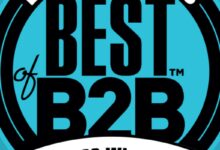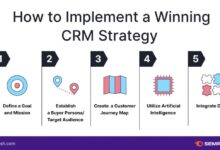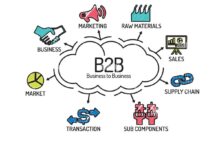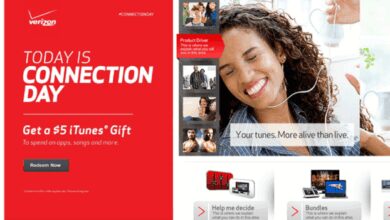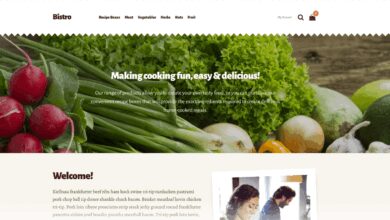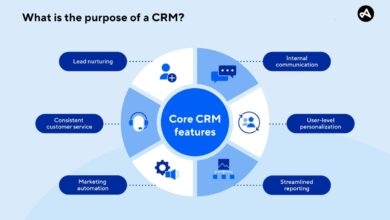Crm system for small business: 5 Best CRM Systems for Small Business to Skyrocket Growth
Running a small business means wearing many hats — sales, marketing, customer service, and more. But what if you could streamline it all with one powerful tool? A CRM system for small business isn’t just for big corporations anymore. It’s your secret weapon to organize leads, boost sales, and keep customers coming back — all without breaking the bank.
Why Every Small Business Needs a CRM System

Small businesses today face fierce competition, rising customer expectations, and the constant pressure to do more with less. A CRM (Customer Relationship Management) system for small business acts as a centralized hub for managing every interaction with your customers. From tracking leads to automating follow-ups, a CRM helps you stay organized, improve efficiency, and scale smarter.
Centralized Customer Data Management
One of the biggest challenges small businesses face is scattered customer information — names in spreadsheets, notes on sticky pads, emails buried in inboxes. A CRM system for small business consolidates all customer data into one secure, searchable platform. This includes contact details, purchase history, communication logs, and even preferences.
- Eliminates duplicate entries and data silos
- Enables quick access to customer history during sales calls
- Supports personalized marketing and service
This centralization means your team spends less time searching and more time selling. According to Salesforce, companies using CRM see a 36% increase in customer satisfaction due to better data access.
Improved Sales Pipeline Visibility
Without a clear view of your sales funnel, it’s easy to lose track of leads or miss follow-up opportunities. A CRM system for small business provides real-time visibility into every stage of the sales process — from initial contact to closed deal.
- Tracks lead progression through customizable sales stages
- Highlights bottlenecks in the pipeline
- Enables accurate sales forecasting
“A CRM doesn’t just store data — it turns customer interactions into actionable insights.”
For example, if five leads are stuck in the “proposal sent” stage for over a week, your CRM can flag them for immediate follow-up, increasing conversion chances.
Enhanced Customer Retention and Loyalty
Acquiring a new customer can cost five times more than retaining an existing one. A CRM system for small business helps nurture long-term relationships by automating check-ins, sending personalized offers, and tracking customer satisfaction.
- Automates birthday and anniversary messages
- Schedules post-purchase follow-ups
- Tracks support tickets and resolution times
By remembering customer preferences and past interactions, your team can deliver a more human, personalized experience — even at scale.
Top 5 CRM Systems for Small Business in 2024
Not all CRM platforms are created equal. For small businesses, the ideal CRM should be affordable, easy to use, and packed with essential features. After extensive research and real-world testing, here are the top 5 CRM systems for small business that deliver maximum value without complexity.
crm system for small business – Crm system for small business menjadi aspek penting yang dibahas di sini.
1. HubSpot CRM
HubSpot CRM is a favorite among small businesses for its intuitive interface, powerful free plan, and seamless integration with marketing and sales tools. It’s perfect for startups and growing teams that want scalability without a steep learning curve.
- Free forever plan with core CRM features
- Drag-and-drop email templates and sequences
- Integration with Gmail, Outlook, and social media
HubSpot’s visual pipeline lets you track deals with ease, while its meeting scheduler eliminates back-and-forth emails. According to G2 reviews, 94% of users find it easy to set up and use within days.
2. Zoho CRM
Zoho CRM offers a robust feature set tailored for small to mid-sized businesses. It’s highly customizable and includes AI-powered insights through Zia, its virtual assistant. With tiered pricing, you only pay for what you need.
- AI-driven sales forecasting and lead scoring
- Workflow automation for repetitive tasks
- Mobile app with offline access
Zoho integrates with over 40 business applications, including QuickBooks and Mailchimp. Its strength lies in automation — for example, automatically assigning leads based on geography or behavior. Learn more at Zoho’s official site.
3. Salesforce Essentials
Salesforce, the global CRM leader, offers Salesforce Essentials — a simplified version designed specifically for small businesses. It brings enterprise-grade functionality to smaller teams with up to 10 users.
- Customizable dashboards and reports
- Email and calendar integration
- Real-time collaboration tools
While it’s more expensive than some competitors, Salesforce Essentials excels in scalability and third-party integrations. It’s ideal for businesses planning rapid growth. Visit Salesforce Essentials to explore its capabilities.
4. Freshsales (by Freshworks)
Freshsales stands out with its AI-powered lead prioritization and built-in phone and email tools. It’s designed for sales teams that want to close deals faster with minimal manual input.
- Integrated phone and click-to-call features
- Visual deal pipeline with drag-and-drop functionality
- AI-based lead scoring and sentiment analysis
One of its standout features is the Freddy AI, which predicts which leads are most likely to convert. Freshsales also offers a free plan for up to three users, making it accessible for micro-businesses. Check it out at Freshworks CRM.
5. Insightly
Insightly is a great choice for small businesses that manage projects alongside customer relationships. It combines CRM with project management, making it ideal for service-based companies like consultants, agencies, and contractors.
crm system for small business – Crm system for small business menjadi aspek penting yang dibahas di sini.
- Project and task tracking within the CRM
- Relationship linking to map customer networks
- Workflow automation and email integration
Its strength lies in connecting customer data with project milestones. For example, a marketing agency can track client campaigns from proposal to delivery — all in one place. Learn more at Insightly’s website.
Key Features to Look for in a CRM System for Small Business
Choosing the right CRM system for small business isn’t just about price — it’s about functionality that aligns with your goals. Here are the must-have features that can make or break your CRM experience.
Contact and Lead Management
The foundation of any CRM is its ability to store and organize contact information. A good CRM system for small business should allow you to import contacts from email, social media, and forms, then segment them by criteria like industry, location, or purchase history.
- Automatic contact capture from emails and websites
- Duplicate detection and merging
- Custom fields for tailored data collection
For example, a local bakery using a CRM can tag customers who prefer gluten-free products and send them targeted promotions.
Sales Pipeline and Deal Tracking
A visual sales pipeline helps you understand where each lead stands and what actions are needed. Look for a CRM that allows customizable stages (e.g., “Initial Contact,” “Quote Sent,” “Closed Won”) and drag-and-drop deal movement.
- Real-time pipeline dashboards
- Deal value and probability tracking
- Forecasting tools based on historical data
This feature is crucial for small sales teams to prioritize efforts and predict revenue accurately.
Automation and Workflow Tools
Time is your most valuable resource. Automation in a CRM system for small business can handle repetitive tasks like sending follow-up emails, assigning leads, or updating records.
- Automated email sequences based on triggers
- Task assignment when a lead reaches a certain stage
- Reminders for overdue follow-ups
“Automation doesn’t replace personal touch — it frees you to focus on it.”
For instance, when a customer downloads a pricing guide, the CRM can automatically send a thank-you email and assign a sales rep to follow up within 24 hours.
How to Implement a CRM System for Small Business Successfully
Even the best CRM will fail if not implemented correctly. A smooth rollout requires planning, training, and ongoing support. Follow these steps to ensure your CRM system for small business delivers results from day one.
crm system for small business – Crm system for small business menjadi aspek penting yang dibahas di sini.
Define Your Goals and Processes
Before choosing a CRM, identify what you want to achieve. Are you looking to increase sales conversions? Improve customer service response times? Reduce manual data entry? Your goals will dictate which features matter most.
- Map out your current sales and customer service流程
- Identify pain points and inefficiencies
- Set measurable KPIs (e.g., 20% increase in lead conversion)
This clarity ensures you select a CRM that aligns with your business model, not the other way around.
Choose the Right CRM for Your Industry
While many CRMs are general-purpose, some are tailored for specific industries. For example, a real estate agency might benefit from a CRM with property listing integrations, while a consulting firm may need robust project tracking.
- Look for industry-specific templates and workflows
- Check for integrations with tools you already use (e.g., accounting software)
- Read reviews from businesses in your niche
For instance, Zoho CRM offers industry-specific editions for retail, healthcare, and education, making setup faster and more relevant.
Train Your Team and Encourage Adoption
Even the most powerful CRM system for small business is useless if your team doesn’t use it. Resistance to change is common, so invest in training and demonstrate clear benefits.
- Provide hands-on training sessions
- Assign a CRM champion to answer questions
- Start with simple features and scale over time
According to Capterra, 43% of CRM failures are due to poor user adoption. Make it easy, show value, and celebrate early wins.
Common CRM Implementation Mistakes to Avoid
Many small businesses rush into CRM adoption without proper planning, leading to frustration and wasted investment. Avoid these common pitfalls when deploying a CRM system for small business.
Skipping Data Cleanup
Migrating messy, outdated, or duplicate data into a new CRM will create chaos. Before importing, clean your existing data — remove inactive contacts, standardize formats, and verify email addresses.
- Use tools like Excel or deduplication software
- Validate phone numbers and addresses
- Segment active vs. inactive leads
A clean database ensures your CRM provides accurate insights and reliable automation.
crm system for small business – Crm system for small business menjadi aspek penting yang dibahas di sini.
Over-Customizing Too Early
While customization is powerful, overdoing it early can complicate the system and slow adoption. Start with default settings and proven templates, then customize as you learn what works.
- Avoid creating too many custom fields initially
- Don’t build complex workflows before testing basics
- Wait for user feedback before major changes
It’s better to evolve your CRM gradually than to overwhelm your team with complexity from day one.
Ignoring Mobile Access
Today’s small business owners and sales reps are on the move. A CRM system for small business must offer a reliable mobile app with full functionality — viewing contacts, logging calls, updating deals, and sending emails.
- Test the mobile app before committing
- Ensure offline access for field workers
- Check sync speed between devices
For example, a home services contractor can update job status from a client’s driveway using their phone — no need to wait until they return to the office.
Integrating Your CRM with Other Business Tools
A CRM doesn’t work in isolation. To maximize its value, integrate it with the tools you already use — email, calendars, marketing platforms, and accounting software. This creates a seamless workflow across your entire operation.
Email and Calendar Sync
One of the most basic yet powerful integrations is syncing your CRM with Gmail or Outlook. This allows you to log emails automatically, schedule meetings, and see customer history without switching apps.
- Automatic logging of sent and received emails
- Calendar sync for meeting tracking
- One-click email from within the CRM
For example, HubSpot CRM offers bi-directional sync, so any meeting scheduled in Google Calendar appears in the contact’s timeline.
Marketing Automation Integration
Connecting your CRM to marketing tools like Mailchimp, ActiveCampaign, or HubSpot Marketing Hub enables targeted campaigns based on customer behavior.
- Sync lead status to trigger email sequences
- Track campaign performance within the CRM
- Score leads based on engagement (e.g., email opens, link clicks)
This integration ensures your marketing and sales teams are aligned, reducing duplication and improving conversion rates.
crm system for small business – Crm system for small business menjadi aspek penting yang dibahas di sini.
Accounting and Payment Systems
For service-based businesses, linking your CRM to accounting software like QuickBooks or Xero eliminates double data entry and improves financial accuracy.
- Automatically create invoices from won deals
- Sync customer payment history
- Track outstanding balances within the CRM
This integration is especially valuable for freelancers, consultants, and agencies who bill clients regularly.
Measuring the ROI of Your CRM System for Small Business
Investing in a CRM should deliver measurable returns. To evaluate success, track key performance indicators before and after implementation. A well-chosen CRM system for small business can significantly boost efficiency, revenue, and customer satisfaction.
Sales Performance Metrics
Monitor how your sales team’s performance changes after CRM adoption. Key metrics include:
- Average deal closure time
- Conversion rates by stage
- Number of deals closed per rep
For example, if your average sales cycle drops from 45 to 30 days after CRM implementation, that’s a 33% improvement in efficiency.
Customer Satisfaction and Retention
A CRM helps you deliver better service, which should reflect in customer loyalty. Track:
- Customer retention rate
- Net Promoter Score (NPS)
- Support ticket resolution time
If repeat purchases increase by 15% within six months of using a CRM, it’s a strong indicator of improved relationship management.
Time and Cost Savings
Calculate how much time your team saves on manual tasks. For example, if your sales reps spend 5 hours less per week on data entry and follow-ups, that’s 260 hours saved annually — equivalent to over six full workweeks.
- Track time spent on administrative tasks
- Measure reduction in duplicate work
- Estimate cost savings based on hourly rates
“The true ROI of a CRM isn’t just in sales — it’s in reclaimed time.”
These savings can be reinvested into growth activities like outreach, product development, or customer engagement.
crm system for small business – Crm system for small business menjadi aspek penting yang dibahas di sini.
What is a CRM system for small business?
A CRM (Customer Relationship Management) system for small business is a software tool that helps manage customer interactions, track leads, automate sales processes, and improve customer service. It centralizes customer data and streamlines communication across teams.
Is a CRM worth it for small businesses?
Yes, a CRM is highly valuable for small businesses. It improves organization, increases sales efficiency, enhances customer retention, and provides data-driven insights — all of which contribute to sustainable growth.
Can I use a CRM for free?
Yes, several CRM systems for small business offer free plans with essential features. HubSpot CRM and Freshsales, for example, provide robust free tiers suitable for startups and small teams.
How long does it take to implement a CRM?
Implementation time varies, but most small businesses can set up a basic CRM in 1–2 weeks. Full adoption and optimization may take 1–3 months, depending on team size and complexity.
Do I need technical skills to use a CRM?
crm system for small business – Crm system for small business menjadi aspek penting yang dibahas di sini.
No, most modern CRM systems for small business are designed to be user-friendly with intuitive interfaces, drag-and-drop builders, and excellent customer support — no coding required.
Choosing the right CRM system for small business is one of the smartest investments you can make. It’s not just about managing contacts — it’s about building stronger relationships, streamlining operations, and unlocking growth. Whether you’re a solopreneur or a growing team, the right CRM can transform how you work. Evaluate your needs, test a few options, and start small. The long-term benefits — increased sales, happier customers, and more time for what matters — are well worth the effort.
Further Reading:
